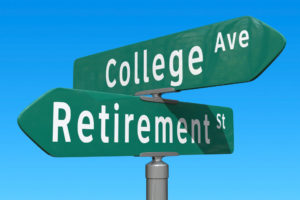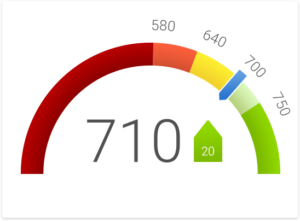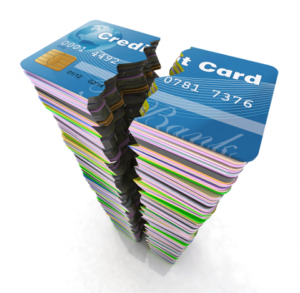Dear Liz: Because of COVID, my 27-year-old son lost his job and health insurance. He was unable to afford continued health insurance and did not qualify for Medicaid. He contracted spinal meningitis and was hospitalized 12 days. The hospital reduced his bill to $28,000 from the original $80,000, but he is still unable to pay. He remains unemployed and without any savings. What would you suggest he do?
Answer: Your son should first call the hospital and ask about applying for financial assistance. Federal law requires nonprofit hospitals to offer this help to low-income patients, and many for-profit hospitals also offer programs that can reduce or even eliminate the charges.
He also should ask about a payment plan geared to what’s left of his income. He should resist any hospital pressure to put the bill on a credit card, because hospital payment plans typically don’t charge interest while credit cards do.
If he’s still left with a bill he can’t pay, he should consult a bankruptcy attorney, and do so as soon as possible. Bankruptcy experts are predicting a big uptick in filings as people and businesses struggle with fallout from the pandemic.
 Today’s top story: How to boost your chances of getting another credit card. Also in the news: 6 great recession rules that still apply, using your 529 plan to pay your student loans, and how to save money on Medicare open enrollment.
Today’s top story: How to boost your chances of getting another credit card. Also in the news: 6 great recession rules that still apply, using your 529 plan to pay your student loans, and how to save money on Medicare open enrollment. Today’s top story: How to avoid waiting on credit card customer service lines. Also in the news: COVID-19 refunds on campus, why older Americans might be having trouble getting credit cards, and money-saving tips everyone should know.
Today’s top story: How to avoid waiting on credit card customer service lines. Also in the news: COVID-19 refunds on campus, why older Americans might be having trouble getting credit cards, and money-saving tips everyone should know.  Today’s top story: Choosing the right vehicle for your off-road adventures. Also in the news: Why a new fee shouldn’t stop you from refinancing your mortgage, what to do when you’ve paid off your credit card debt, and how to manage any credit card debt you may have racked up the last few months.
Today’s top story: Choosing the right vehicle for your off-road adventures. Also in the news: Why a new fee shouldn’t stop you from refinancing your mortgage, what to do when you’ve paid off your credit card debt, and how to manage any credit card debt you may have racked up the last few months. Today’s top story: Is it harder for seniors to get credit cards? Also in the news: Factoring in fees on grocery, delivery, what to do if losing your job means losing your life insurance, and there’s still time to claim your missing $500 stimulus for dependents.
Today’s top story: Is it harder for seniors to get credit cards? Also in the news: Factoring in fees on grocery, delivery, what to do if losing your job means losing your life insurance, and there’s still time to claim your missing $500 stimulus for dependents. Today’s top story: Can you have too much credit? Also in the news: How to safely move during a pandemic, what personal finance apps should be doing to better serve older people, and how to avoid paying a penalty if you missed the tax filing deadline.
Today’s top story: Can you have too much credit? Also in the news: How to safely move during a pandemic, what personal finance apps should be doing to better serve older people, and how to avoid paying a penalty if you missed the tax filing deadline. Today’s top story: How to increase your chances of credit card approval. Also in the news: How to transition from work-at-home novice to pro, why the weak dollar is good for your investments, and why champagne sales have gone flat.
Today’s top story: How to increase your chances of credit card approval. Also in the news: How to transition from work-at-home novice to pro, why the weak dollar is good for your investments, and why champagne sales have gone flat. Today’s top story: Mortgage trends for the rest of 2020. Also in the news: Why a credit card company can lower your limit, why you might not want to zero out every credit card, and how to know if your 401(k) fees are too high.
Today’s top story: Mortgage trends for the rest of 2020. Also in the news: Why a credit card company can lower your limit, why you might not want to zero out every credit card, and how to know if your 401(k) fees are too high.  Today’s top story: Is it okay to never have a credit card? Also in the news: How to organize important documents simply and safely, can a credit card company lower your credit limit, and how to try and prevent your eviction.
Today’s top story: Is it okay to never have a credit card? Also in the news: How to organize important documents simply and safely, can a credit card company lower your credit limit, and how to try and prevent your eviction. Today’s top story: Options for undergrad, grad, veteran and international students when colleges say stay home. Also in the news: Which airlines have handled COVID-19 the best, is it OK to never have a credit card, and where to put your money when interest rates are falling.
Today’s top story: Options for undergrad, grad, veteran and international students when colleges say stay home. Also in the news: Which airlines have handled COVID-19 the best, is it OK to never have a credit card, and where to put your money when interest rates are falling.